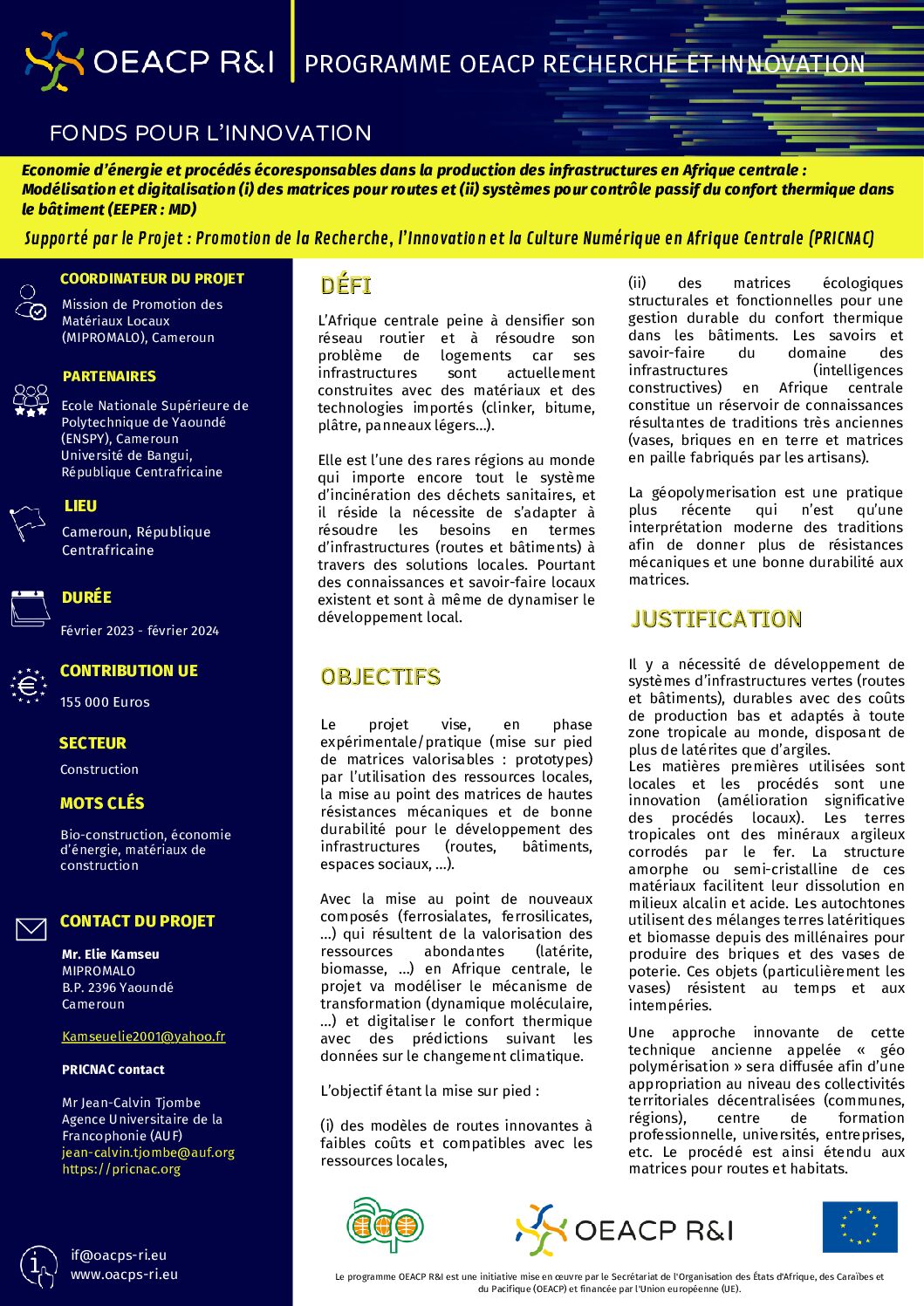Project duration
12 Months
Start 23/02/23 End 22/02/24
Project-location
Cameroon, Central African Republic
The importance of this project lies in the development of green infrastructure systems (roads and buildings), sustainable with low production costs and adapted to the whole tropical area of the world, with more laterites than clays. The raw materials used are local and the processes are an innovation (significant improvement of local processes). Tropical soils have clay minerals corroded by iron. The amorphous or semi-crystalline structure of these materials facilitates their dissolution in alkaline and acidic media. Indigenous people have been using lateritic earth mixtures + biomass for thousands of years to produce bricks and pottery vessels. Analyses have shown that these objects (especially the vases) are resistant to time and weathering. An innovative approach to this ancient technique called “geo-polymerisation” will be disseminated for appropriation at the level of decentralised territorial authorities (communes, regions), vocational training centres, universities, companies, etc. The process is thus extended to matrices for roads and habitats.
The project ‘EEPER’ is funded by PRICNAC
Publications
 |
Project coordinator
Mission de Promotion des Matériaux Locaux (MIPROMALO), Cameroon
Project partners
Ecole nationale Supérieure Polytechnique de Yaoundé, Cameroon
Université de Bangui, Central African Republic
